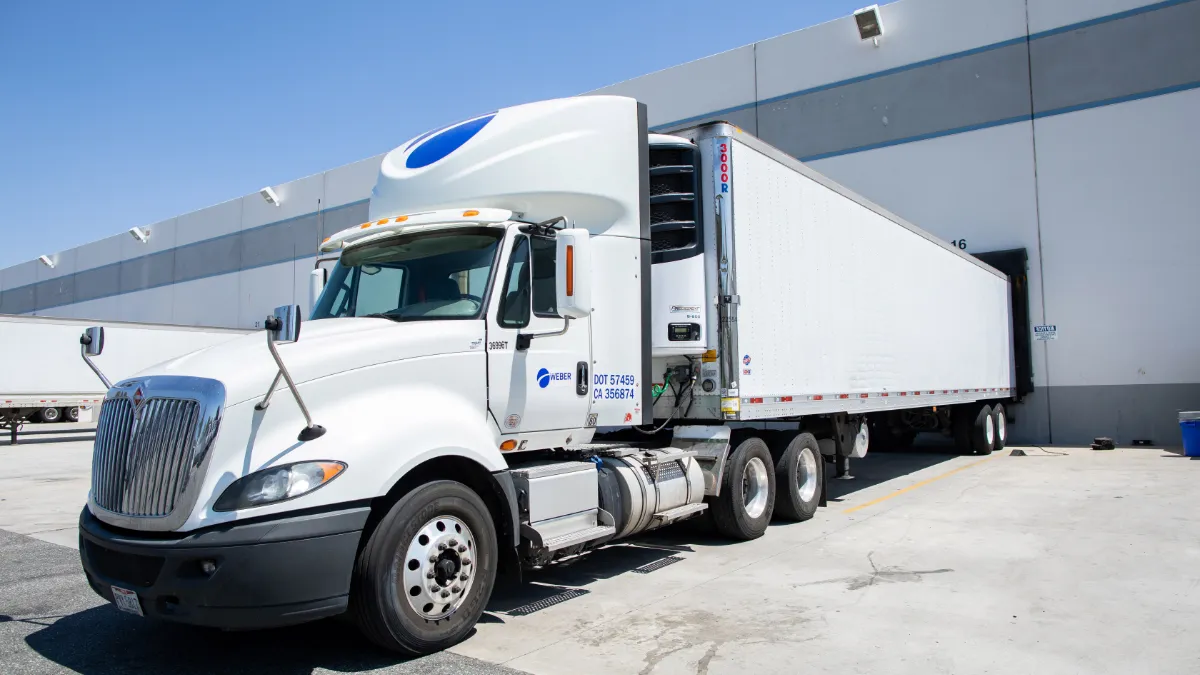It has been nearly one year since the FMCSA issued its coronavirus-related emergency declaration, giving drivers hauling essential loads some exemptions from HOS. Few transportation companies could have predicted a need for extension into Q2 2021.
But that's where things stand. Last month, the FMSCA extended the exemption through May 31, and trucking firms continue to weather it best they can.
"While we are seeing very encouraging trends due to vaccinations and other factors, the COVID pandemic is still challenging supply chains in a myriad of ways," said American Trucking Associations Spokesperson Sean McNally.
A year under the declaration has allowed some fleets to pitch into relief efforts more efficiently. It has granted additional flexibility to trucks carrying livestock and livestock feed; medical supplies and equipment related to COVID-19; food products; and supplies and equipment necessary for community safety and sanitation, such as masks, gloves and disinfectants.
In general, trucks would haul these items with or without a declaration. But the exemption makes for a good safety net.
"The feedback we are getting from members and the carrier community is that this exemption is not something fleets are adjusting their operations to take advantage of," McNally said. "Rather, it is a good fall back to have 'just in case.'"
Applying the exemption
Jerry Critchfield, vice president of transportation for West Coast-based Weber Logistics, welcomed the emergency declaration extension. Weber falls under the exemption for its delivery of food.
"For the most part, the exemption hasn't affected the way we do business as much as it has allowed us to do business," he said. "When you consider how sporadic the supply chain has been throughout the pandemic, the exemption has allowed us to keep supplies flowing."
The exemption has specifically aided Weber with longer hauls. On a route from California to Seattle, Weber saves somewhere between 24 and 36 hours of actual delivery time each run, thanks to the exemption, according to Critchfield. "Now we can make this trip in two days with no problem," he said.
"When you consider how sporadic the supply chain has been throughout the pandemic, the exemption has allowed us to keep supplies flowing."

Jerry Critchfield
Vice President of Transportation at Weber Logistics
While the exemption grants relief from the normal HOS rules, it does not change other requirements that apply to things like licensing, hazmat transport, size and weight. In addition, carriers must ensure that their drivers are not operating in a fatigued state, and grant rest when requested.
Transportation companies that fall under the HOS exemption still have important factors and restrictions to keep in mind when operating.
Brandon Wiseman, an attorney specializing in transportation regulations with law practice Scopelitis, Garvin, Light, Hanson & Feary, based in Indiana, recommends a fully informed, conservative approach to operations.
"This isn't a blanket exemption, so it's imperative to determine which drivers qualify and which don't," he said. "If you have a driver who is making routine, local deliveries, the exemption rules don't apply."
Wiseman said that, when it comes to planning routing and shipping, trucking companies must remember when the exemption begins and ends. Critchfield said maybe 70% of its deliveries are local, so the HOS rules have not come into play on most runs.
"This isn't a blanket exemption, so it's imperative to determine which drivers qualify and which don't."

Brandon Wiseman
Attorney with Scopelitis, Garvin, Light, Hanson & Feary
"If you're taking emergency supplies to a customer, that's exempt," Wiseman said. "But if you're backhauling non-emergency supplies, that's not exempt. Know how many hours your driver operated on that front end to ensure there are enough hours available for the return."
Specifically, the exemption requires that, in a situation like Wiseman's example, after 14 hours or more transporting emergency supplies, the driver must be off duty for 10 hours before returning with a non-emergency load. This resets the HOS clock.
Also remember that liability still exists, Wiseman said. "If your driver is working 20 hours and causes a catastrophic accident, that looks bad," he explained. "Place reasonable restrictions on your drivers, regardless."
Rising to the occasion
At Weber, much of the responsibility for safety and compliance comes down to an office staff and dispatchers who are alert to how drivers are feeling and behaving.
"Most drivers are good about taking rest when needed, but it's important to have a staff that can recognize fatigue and tell a driver to pull over and rest," said Critchfield.
While the pandemic has been a stressful time for drivers, Critchfield has been pleased with how they've risen to the occasion, and he expects that to continue.
"Trucking has always stepped up in cases of disaster and emergency."

Jerry Critchfield
Vice President of Transportation at Weber Logistics
"Trucking has always stepped up in cases of disaster and emergency," he said. "We are working through this very well."
It's unknown whether the FMCSA will further extend the HOS emergency exemption beyond the end of May. But McNally had this to say:
"I think we as an industry, and as a country, are eager to get to a place where the emergency declaration and this extension are deemed unnecessary."












